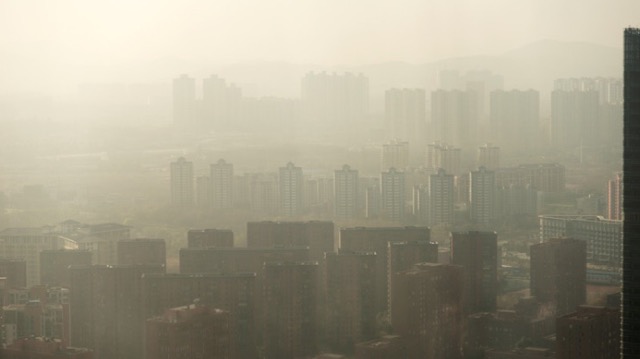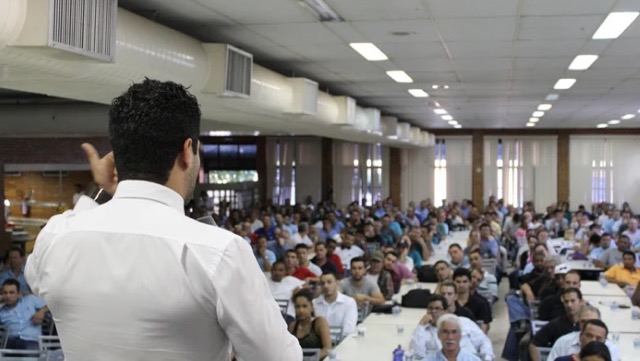
In the busy city of Noida, pollution has become a growing concern among its citizens. Among them was Samira, an active and passionate resident who was deeply worried about the deteriorating air quality. Inspired to take action, she decided to write a letter to the city's mayor, Mr. Patel.
Samira carefully penned her thoughts, outlining her concerns and expressing her desire to understand the government's policies to combat air pollution. With her letter in hand, she made her way to City Hall, determined to have her voice heard.
Upon arriving at City Hall, Samira was greeted by friendly staff who directed her to the mayor's office. Nervous yet resolute, she knocked on the door, and a warm voice invited her inside. Mayor Patel, a dedicated leader known for his approachability, greeted Samira with a smile.
"Good morning, Mayor Patel," Samira began. "I hope I'm not intruding, but I have something important to discuss."
"Of course, not at all," the mayor replied, motioning for her to take a seat. "What brings you here today?"
Samira handed him the letter, and as he read it, she explained her concerns about the city's air quality, associated health issues, and her curiosity about the government's initiatives to tackle the issue.
"I believe that the citizens have the right to be informed about the government's actions in reducing air pollution," Samira said earnestly. "I think a public lecture by you, our respected mayor, would enlighten us and inspire greater community involvement in these efforts."
Mayor Patel nodded thoughtfully. "You're absolutely right, Samira," he replied. "Transparency and community involvement are crucial in addressing environmental challenges. Your request makes perfect sense, and I am grateful for your initiative in bringing this to my attention."
Within days, Samira received an official invitation from Mayor Patel himself, inviting her to attend a public lecture he would be delivering on the government's policies to reduce air pollution. The event was to be held at the City Hall's auditorium, open to all citizens.
The day of the lecture arrived, and the auditorium was packed with concerned citizens eager to hear from their mayor. Samira sat in the front row, feeling proud of the role she played in encouraging the mayor to address the issue publicly.
With eloquence and sincerity, Mayor Patel began his lecture by sharing comprehensive details of the city's ongoing efforts to combat air pollution. He outlined initiatives such as investing in renewable energy, promoting electric vehicles, improving public transportation, and enforcing stricter emission standards for industries.
He also highlighted various Indian policies that aim at reducing air pollution:
- Pradhan Mantri Ujjwala Yojana (PMUY): Free LPG connections to reduce traditional cooking methods.
- National Clean Air Programme (NCAP): City-wise targets to reduce PM concentrations by 30% by 2024.
- FAME India Scheme: Adoption of electric vehicles by offering incentives to buyers.
- Air Quality Index (AQI) Implementation: Monitoring and telling real-time AQI to the public.
- Green Rating for Integrated Habitat Assessment (GRIHA): encouraging environmentally friendly construction.
He also emphasized the importance of collective responsibility and urged citizens to actively participate in making their city greener and healthier.
"Change begins with each one of us," the mayor proclaimed. "Every action we take, no matter how small, contributes to the greater good of our environment. Together, we can make this city a model city in reducing air pollution."
As the lecture concluded, applause filled the room. Citizens approached Mayor Patel with gratitude and a newfound determination to do their part in the city's green initiatives.
Samira felt a sense of accomplishment and pride in her role as an active citizen. Her letter had prompted the mayor's response and ignited a sense of awareness and empowerment among her fellow residents.
If everyone plays their part in following these policies and reducing air pollution, we can definitely see results. In the following weeks and months, Mayor Patel and his team aimed to engage with the community, organize workshops, tree-planting drives, and clean energy campaigns.
The city's air quality will gradually improve, and the city can become an example of what a proactive government and an engaged citizenry could achieve together.
Samira's initiative had proven that even a single letter from an active citizen could set a chain of positive actions in motion, and it taught the residents the importance of holding their leaders accountable for safeguarding the environment for future generations.








Leave A Comment
Your email address will not be published. Required fields are marked.